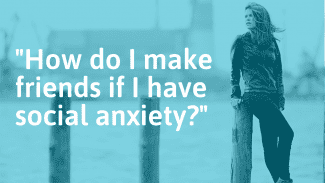We all know the feeling: looking at a party invitation or event reminder, unsure whether to go out and socialize or just stay home. Deciding if you should attend a social event can be tough, especially when you’re thinking about the good and bad sides of going.
In this guide, we’ll look at the pros and cons of joining social events. By learning about the factors in making this choice, you’ll be better prepared to pick the option that fits your needs, what matters most to you, and your personal likes and dislikes.
Sections
- How to decide if you should go
- Ways to make the experience less uncomfortable
- Benefits of going to social events
- Drawbacks of going to social events
- Final words
- Common questions
How to decide if you should go
Let’s dive deeper into the factors that can help you decide whether or not to attend a social event.
Is this a special occasion?
Consider if the event is a unique or rare gathering with people you haven’t seen in a long time or won’t see again for a while. Special occasions like reunions, milestone birthdays, or annual parties can create cherished memories, and missing out on them might lead to regret. When an event is truly special, it’s often worth stepping out of your comfort zone to attend.
Is this event important to someone close to you?
Think about whether the event holds significance for a loved one, such as a wedding, graduation, or a farewell party for a friend moving away. If the person matters to you, it’s usually a good idea to make an effort and attend the event. Your presence can show your support and strengthen your bond with that person.
When was the last time you went out?
Reflect on how often you’ve been socializing lately. If you’ve been isolating yourself for an extended period, it might be time to change things up. Remember that continually declining invitations can result in fewer opportunities to connect with others in the future. Feeling a bit awkward or uneasy at first is normal, but these feelings often fade as the event unfolds.
Identify why you don’t want to go
Take a moment to pinpoint the reasons behind your hesitation. Your concerns might vary depending on the type of event. For instance, if you’re going on a date, you might worry about rejection or awkward silences. At a large gathering, you could be anxious about not knowing many people or struggling to find someone to talk to. If it’s a big family event, you might dread the endless small talk and catching up. Identifying the specific reasons for your reluctance can help you address your concerns and make a more informed decision about attending.
Consider your energy levels
Before deciding to attend a social event, it’s important to evaluate your current energy levels. Are you feeling physically and emotionally drained, or are you energized and eager to connect with others? If you’re already exhausted, pushing yourself to attend might not be the best choice. On the other hand, if you have energy to spare, socializing could be a great way to boost your mood even more.
Prioritize your commitments
It’s essential to prioritize your commitments and obligations. Attending every social event might not be feasible, especially if you have a busy schedule. Take a look at your calendar and decide which events are most important to you. Balance your personal and professional life, and make sure to allocate time for self-care and relaxation.
Assess your interest in the event
Finally, consider your genuine interest in the event or activity. Are you excited about the prospect of attending, or does it feel like an obligation? It’s important to participate in events that align with your passions and interests, as these experiences are more likely to be enjoyable and fulfilling. On the other hand, if the event doesn’t resonate with you, it might be better to decline the invitation and focus on activities that genuinely excite you.
Ways to make the experience less uncomfortable
Understanding your concerns about attending a social event can help you find ways to ease the discomfort involved.
Conversation starters
If you’re worried about being too shy to talk at a gathering with many people, remember that you can always start a conversation by asking a question. For instance, if there’s music playing, you could ask, “Do you know who sings this song?” Or if you’re near the drink station, you might inquire, “Have you tried this drink before?” If you’re unsure where to sit or stand, look for a close friend and join their group. Don’t pressure yourself to speak immediately – it’s perfectly fine to participate by listening.
Choose a familiar setting for a date
When going out on a date, consider suggesting a familiar bar or restaurant. Knowing the location, parking options, and your preferred drink can help alleviate nerves. While this may seem overly planned, rest assured that the date itself will still be spontaneous and enjoyable.
Ensure you can leave when you want
Knowing that you can leave an event whenever you wish can provide significant relief. To ensure you have the freedom to come and go as you please, be responsible for your own transportation, whether by car, bus, or on foot. Familiarize yourself with the route to and from the event. This doesn’t mean you’ll necessarily want to leave early, but having an exit plan can help you feel less confined and nervous.
Reflect on your mood
Take your current emotional state into account when deciding whether to attend an event. If you’re having a bad day or dealing with a significant life event, such as a breakup or job loss, it might not be the best time to attend a crowded gathering with strangers. On the other hand, if you’re feeling down but have been invited to an intimate get-together with close friends, you might find comfort and support in their company. Be honest with yourself about your emotions and listen to what you truly need.
Benefits of going to a social event
- If you tend to be anxious around people, each time you go out is an opportunity to confront those feelings and practice socializing. Like most things in life, things start to come naturally the more you do them. Working through your fears is one of the most valuable things you can do for yourself.
- Talking to others can expose us to new and inspiring ideas. Conversations can encourage us to start a new hobby or inform us of a shop that has recently opened, or even introduce us to a profession we’ve never heard of before.
- Through putting yourself in different situations, you’re able to gain a deeper understanding of yourself and what social settings are more suitable for you than others.
- You’re able to strengthen relationships you have and form new ones.
- Connecting with others has been proven beneficial to our mental health[1,2]. It’s an opportunity to laugh, relate, and share our deepest thoughts.
Drawbacks of going to a social event
- Social events are meant to connect us, but many times can be overcrowded and impersonal. We may end up feeling as if we lack the ability to create meaningful connections.
- You might find yourself in an uncomfortable situation, leading you to behave in ways you wouldn’t have otherwise, simply because you want to fit in.
- You risk being confronted with parts of your personality you don’t like, for example being overly shy next to people you don’t know. This can lead to negative self-talk and upsetting thoughts.
- Social outings can oftentimes be pricey. This can be discouraging, especially if you’re trying hard to save up or you’d rather spend our money on different things.
Final words
Deciding whether to attend social events can be challenging, especially if you feel anxious about socializing or often turn down invitations. However, it’s essential to push yourself to attend events occasionally, with some exceptions: if you already go out regularly, if attending would strain your budget, or if the event involves people who negatively influence you. For tips on becoming more social, check out our guide on how to be more social.
Striking a balance between staying in and going out may not always be easy. It’s essential to respect your need for downtime while not missing out on the unique experiences that social events can offer.
When you decide to go out, remember that the goal is to have fun, not to impress others or pretend to be someone you’re not. You don’t have to be extroverted or constantly engaged in conversation to enjoy yourself in social settings.
If you choose to stay home, be at peace with your decision, but avoid making it a constant habit.
Ultimately, there’s no one-size-fits-all answer to whether you should attend social events. The key is to be honest with yourself and confront your discomfort when necessary, allowing you to make the best decisions for your well-being and personal growth.
Common Questions
4. What if I have social anxiety and struggle to attend any events?
Consider seeking professional help from a therapist or counselor to work through your social anxiety. They can help you develop strategies for managing anxiety and gradually increasing your comfort in social situations. In the meantime, try attending smaller events with trusted friends to build your confidence.
2. Should I force myself to go to events even if I don’t feel like it?
While it’s important to push yourself out of your comfort zone, you also need to listen to your body and mind. If you’re feeling exhausted or overwhelmed, it might be better to take a break and prioritize self-care. However, if you consistently avoid social events, try to challenge yourself by attending smaller, more manageable gatherings to build your confidence gradually.
2. What if I feel pressured to attend an event I don’t want to go to?
It’s crucial to set boundaries and prioritize your well-being. Politely decline the invitation if you genuinely don’t want to go, and don’t feel forced to provide a detailed explanation. Remember that it’s okay to say no when you need to prioritize your own needs.
3. How can I make new friends at social events?
To make new friends at social events, show genuine interest in others by asking open-ended questions and actively listening to their responses. Look for common interests and shared experiences to build connections. Remember to be approachable, maintain eye contact, and smile when engaging in conversation. Don’t be afraid to exchange contact information and follow up with people after the event.
4. What if I have a hard time fitting in or finding people to talk to at an event?
If you’re having difficulty fitting in or finding people to talk to, try joining group conversations or approaching someone who appears to be alone. Be open-minded and patient, as it may take time to find people with whom you can connect. Remember that it’s normal to feel a bit awkward at first, but with practice and persistence, socializing will become more comfortable.
5. How do I know if I should attend a particular event or not?
Consider factors such as the importance of the event, its potential impact on your relationships, and whether you have attended similar events recently. Assess your current emotional state and energy levels to determine if you can genuinely enjoy and benefit from the event. If you’re unsure, try setting a time limit for yourself and commit to staying for a specific duration, allowing you the option to leave if you feel uncomfortable or overwhelmed.


















